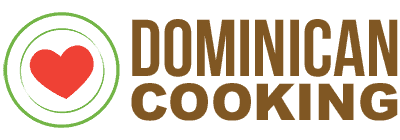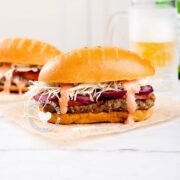Thanks to the wonderful fruits and vegetables available in the Dominican Republic babies and toddlers can get a good start.

I weaned my baby son here in the Dominican Republic, and found that many of the foods found here worked as excellent first foods for him. The requisites - wherever you're coming from - were that they should be palatable, easy to digest, and nutritious.
First stage
When instructed by the pediatrician: It will all be purées like avocado, papaya, banana, rice, carrot, potato, pumpkin, zucchini, one ingredient at a time, mashed with the baby's usual milk.
Second stage
Once the solid food routine has been established: combinations of tried and tested ingredients like potato and carrot, onion and pumpkin, zucchini and carrot, rice, and mixed vegetables. After the baby is 6 months old some grated cheese can be added for flavor.
Celery is a great ingredient to add bite to the taste if not the texture because at this stage the food is all puréed.
Third stage
All of the above, and now it is safe to introduce new foods like crema de habichuelas (kidney bean or black bean puree, without salt or pepper) which is traditional Dominican baby food.
There is so much variety and these foods are so easy to prepare that there is rarely a need to buy jars of baby food. The exceptions were when we were out and about, and then I would always try to ensure that the jars I bought were sugar-free.
The advice I was following for feeding a baby under one year of age is to add NO sugar or salt to the food. This is standard advice in Europe and North America, but in the DR it was considered subversive by some. In the case of salt, it can damage the baby's kidneys. With sugar, the idea is to introduce healthy eating habits. If a baby is used to sweetened foods it'll go on eating them for life. Dominican babies are often given their milk with a hefty addition of sugar from a very early age: if they grow up with any teeth at all they are sure to be sweet ones!
After the first year
Once a baby is over a year old, these rules can be relaxed, but as far as possible try to keep to the regime without becoming obsessive. A one-year-old will not miss fizzy drinks or lollipops unless s/he is introduced to them. Ice cream and cake can be treated as special, birthday party food. This is easy especially in the case of a first or only child. Subsequent children will usually be 'led astray' by their older siblings!
Most doctors advise that babies should 'drop' the bottle after their first birthday. They can continue to drink their milk from a cup and will consume it in other forms such as yogurt and cheese, and with breakfast cereals. My son especially enjoys mangú of all varieties, which can be made with milk.
I am convinced that thanks to the wonderful fruits and vegetables easily available in the Dominican Republic my son got a particularly good nutritional start, and as a result, has now grown into a toddler who enjoys a varied and mostly healthy diet. Please discuss your baby's diet and schedules with her pediatrician.

Read more
- NHS - Weaning your baby
- NHS - Weaning and Solid Foods
- NIH - What's Weaning and How to Do It
- Children's Minnesota - When Can My Baby Start Eating Solid Foods?
This is not medical advice, please consult your child's pediatrician for advice and guidance.






